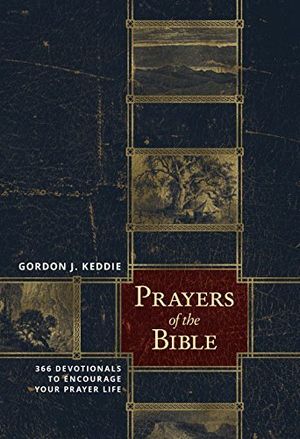Books of daily devotional readings are not for everyone. Many such books are already available and this one may seem intimidating at over 700 pages. Readers should not be put off, however.
It distils more than 30 years of prayer meeting addresses by Gordon Keddie. This is a worthwhile and helpful volume, containing a meditation on prayer for each day of the year. My heart was warmed as I continued to use it.
The book aims to cover all the main prayers of Scripture and many of its passages about prayer. These are set out in the order they occur in the Bible. This makes the book usable as a reference tool, as well as a daily devotional. It also provides variety within a framework of continuity.
Keddie surveys some of the lesser-known and more unusual prayers of the Bible, doing well to show their continuing relevance. For example, the subject for 29 January is the matter of praying about unsolved murder (Deuteronomy 21:1-9)! Keddie introduces the problem of unsolved crime, before helpfully explaining the passage and drawing out practical implications for us today: we should pray (1) for the mercy of God toward those who do not know Christ; (2) for those in authority, that they would administer justice in the wider community; and (3) for the church community, that it may never wink at sin and cover up anyone’s need of personal repentance, faith in Christ and submission to justice.
Inevitably, a book of this sort is slightly patchy in terms of the Scriptures covered. For example, only 64 Psalms are dealt with and, while four days are given to Psalm 22, not a single entry is given for Psalm 119.
On the other hand, nine entries on the Lord’s Prayer provide very helpful exposition. The same could be said for the heart-warming devotions based on the Saviour’s High Priestly prayer in John 17. Indeed, on almost every page, the author points us afresh to the Lord Jesus, the only one by whom we come to God.
After the meditation for each day, the author suggests some verses from a Psalm on the theme addressed. In my experience, making use of a suitable metrical Psalter and singing the suggested verses enhances devotions and reinforces the subject considered. At the end of each day’s devotion, a space is left for readers to list ‘things I will pray for today’.
Writing in the Foreword, Richard Philips suggests that future church historians will be fascinated by our present time: how could Christians with such a wealth of Bible study materials and such energy devoted to church planting and evangelism have had so little cultural influence?
He suggests the reason is a shocking neglect of prayer, which undermines all the efforts of our generation. If Keddie’s book serves to cultivate more attention to this vital activity, who knows what blessings may flow from it?
David Cooke
Banbury




